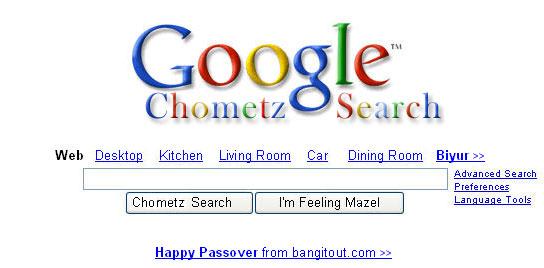The Shulchan Aruch states that the search for chametz on Pesach eve should be by the light of a single candle. The Mishna Brurah explains that candlelight enables us to find chametz hidden in holes and crevices (Orach Chaim 433). This reason is found in the Gemara as well, but the primary derivation of this law there is actually from Scriptural verses:
Where do we learn this from? Rav Chisda said, we learn finding from finding, and finding from seeking; and seeking from seeking, and seeking from candles; and candles from candle. Finding from finding: Here it is written “Seven days leaven will not be found in your houses” (Shemot 12:19), and there it is written “And he sought beginning with the oldest and ending with the youngest, and [the goblet] was found” (Bereshit 44:12). And finding from seeking – from itself [the verse begins “And he sought”]. And seeking from [seeking and seeking from] candles, as it is written “At that time I will seek Yerushalayim with candles”. (Tzefania 1:12). And candles from candle, as it is written, “The candle of Hashem is the soul of man, which searches all crevices of the innards” (Mishlei 20:27).
The Gemara goes on to explain that the last verse clarifies that the candlelight search is not a less thorough one – seeking with candles instead of a torch to overlook minor transgressions – but rather a more thorough one, just as the lone candle of the soul of man illuminates and penetrates all his inner- most parts (Pesachim7b).
What is the lesson of each stage of this progression?
Finding from seeking: It’s easy not to find chametz on Pesach – just be careful not to look for it! Learning “finding” from “seeking” teaches that “leaven will not be found” means that we should not be able to find it even after looking for it, as Yosef’s servant looked for the goblet in the sacks of the brothers.
Seeking from candles: This teaches us that sometimes it is enough to seek something with modest means; we have to seek, but we don’t need a torch or a floodlight; candlelight is enough.
Candles from candle: The fact that we employ modest means doesn’t mean we do a superficial job. On the contrary, sometimes modest means are ideal for a thorough search. The human soul is considered the candle of man; it penetrates our entire being even if it is not a burning conflagration, and often it is precisely by having a small, measured degree of enlightenment that we are able to maintain the sustained illumination which enables us to search all our psychic crevices for even our most refractory character traits.
It is common to view the search for chametz as an analog or symbol for searching out our shortcomings in order to improve our ways. Indeed, we find other places where leaven is considered a symbol for our evil impulse (see Brachot 17a). But we see from the above passage that this likeness is more than a mere vort or suggestive hint. On the contrary, instead of learning an interesting moral lesson from the symbolism of the halakha, here we learn the halakha itself from a moral lesson in Scripture! It seems that the parallel between the elimination of chametz and the process of character improvement is a very deep one, intimately connected to the nature of this commandment.
Rabbi Asher Meir is the author of the book Meaning in Mitzvot, distributed by Feldheim. The book provides insights into the inner meaning of our daily practices, following the order of the 221 chapters of the Kitzur Shulchan Aruch.
The words of this author reflect his/her own opinions and do not necessarily represent the official position of the Orthodox Union.

